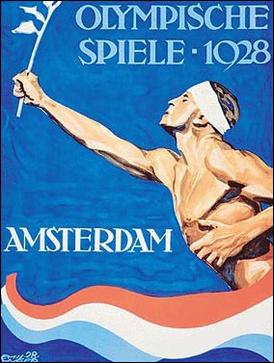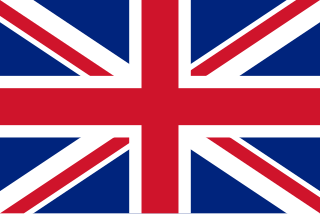
The 1928 Summer Olympics, officially the Games of the IX Olympiad, was an international multi-sport event that was celebrated from 28 July to 12 August 1928 in Amsterdam, Netherlands. The city of Amsterdam had previously bid for the 1920 and 1924 Olympic Games. Still, it was obliged to give way to war-torn Antwerp in Belgium for the 1920 Games and Pierre de Coubertin's Paris for the 1924 Games.
A water polo tournament was held on the Seine on 11 and 12 August 1900 as part of the 1900 Summer Olympics. Eight teams from four countries, all European, entered the event, although only seven ended up playing. The Osborne Swimming Club of Manchester, England, which has been listed with two rosters that are nearly entirely different, became the first Olympic water polo champions by defeating the Brussels Swimming and Water Polo Club of Belgium. Third place went to the two French-based semi-finalists, Libellule de Paris and Pupilles de Neptune de Lille, the latter of whom entered two teams, but merged them together after the first round.
At the 1908 Summer Olympics, a water polo tournament was contested.
Ten nations competed in water polo at the 1956 Summer Olympics in Melbourne.

Water polo has been part of the Summer Olympics program since the second games, in 1900. A women's water polo tournament was introduced for the 2000 Summer Olympics. Hungary has been the most successful country in men's tournament, while the United States is the only team to win multiple times at the women's tournament since its introduction. Italy was the first to win both the men's and women's water polo tournaments.

France competed at the 1928 Summer Olympics in Amsterdam, Netherlands. 255 competitors, 219 men and 36 women, took part in 112 events in 17 sports. At the beginning of the games there was an incident where a French coach was physically assaulted by a Stadium gatekeeper who refused him entry. It boiled over to a point where the entire French team did not participate in the Parade of Nations, and conversations were made to pull out of the games completely. However, the issue was resolved and France went on to compete.

Great Britain, represented by the British Olympic Association (BOA), competed at the 1924 Summer Olympics in Paris, France. This was the first Summer Olympics in which athletes from the newly independent Irish Free State competed separately. Following the Royal and Parliamentary Titles Act 1927, the name changed (officially) to 'United Kingdom of Great Britain and Northern Ireland' but the Olympic team competed as Great Britain from the 1928 games onwards. 267 competitors, 239 men and 28 women, took part in 115 events in 18 sports.

Belgium competed at the 1928 Summer Olympics in Amsterdam, Netherlands. 187 competitors, 176 men and 11 women, took part in 90 events in 15 sports.

At the 1928 Summer Olympics in Amsterdam, four diving events were contested. The men's plain high diving event was dropped from the Olympic program. The competitions were held from Monday, 6 August 1928 to Saturday, 11 August 1928.
Final results for the water polo tournament at the 1948 Summer Olympics played at Finchley Lido.
Final results for the water polo tournament at the 1936 Summer Olympics:
Final results for the water polo tournament at the 1924 Summer Olympics. All medals were decided by using the Bergvall system.
The 1912 Summer Olympics in Stockholm saw the fourth water polo tournament at Olympics. All games took place in the newly built swimming stadium in Djurgårdsbrunnsviken from 7 to 16 July 1912. All medals were decided by using the Bergvall system.

Ireland is an international men's water polo team representing the island of Ireland. The Irish Water Polo Association (IWPA) was founded in 1964 and is affiliated to Swim Ireland.
This article contains lists of results of the United States men's national water polo team at the Summer Olympics. The lists are updated as of March 30, 2020.
This article presents the national team appearances in the men's Olympic water polo tournament since the inaugural official edition in 1900.
This article lists various water polo records and statistics in relation to the Great Britain men's national water polo team at the Summer Olympics.








